Why are Starbucks workers striking?
No caffeination without representation!

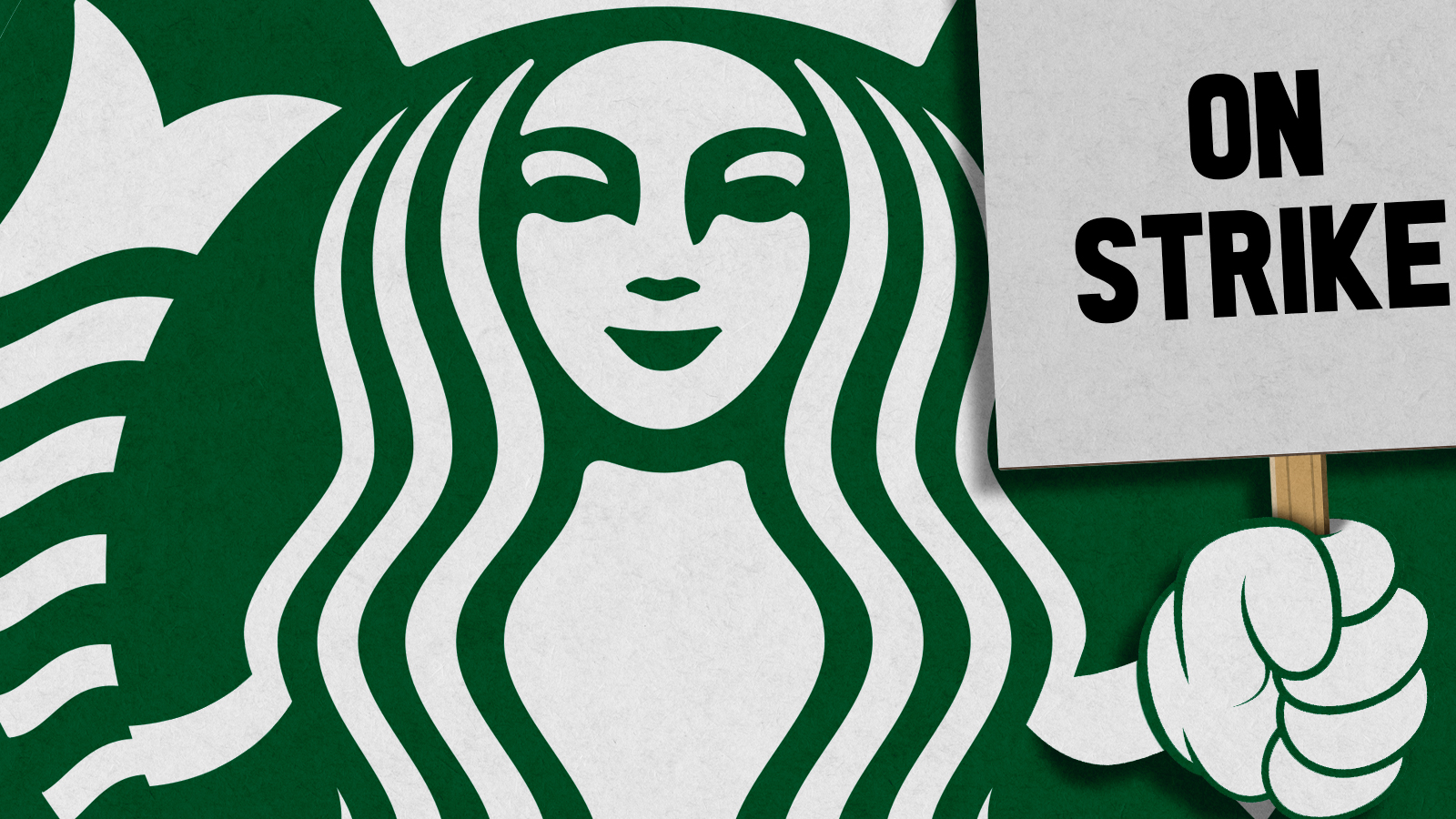
A free daily email with the biggest news stories of the day – and the best features from TheWeek.com
You are now subscribed
Your newsletter sign-up was successful
On Starbucks' Red Cup Day, one of the busiest days of the coffee chain's year, over 100 stores closed as workers went on strike. Here's everything you need to know:
What is happening?
Members of the Starbucks Workers Union closed over 100 stores across the country on one of the company's busiest days of the year in protest of stalled contract negotiations, The Washington Post explains. The union represents approximately 7,000 Starbucks workers across the country.
The union claims that Starbucks has unnecessarily delayed discussing labor contracts, while the company asserts that some of the union's conditions for negotiation are impossible to accept, such as allowing members to observe negotiations silently on Zoom.
The Week
Escape your echo chamber. Get the facts behind the news, plus analysis from multiple perspectives.

Sign up for The Week's Free Newsletters
From our morning news briefing to a weekly Good News Newsletter, get the best of The Week delivered directly to your inbox.
From our morning news briefing to a weekly Good News Newsletter, get the best of The Week delivered directly to your inbox.
Some workers took to picketing outside their stores while others staged walkouts. The protest took place on Nov. 17, so-called "Red Cup Day," when the company gives out holiday-themed reusable cups. It is one of the busiest days of the year for the company, and Starbucks was reportedly already struggling with staffing before the walkout, according to The Associated Press. "It's honestly one of those days that a lot of ... baristas try to ... ask for off because it's always always a very insane day," Josie Serrano, a worker in Long Beach, California, told NPR.
Why are workers striking?
Starbucks employees were advocating for higher pay, better and more consistent schedules, and higher staffing at busier stores, AP writes.
Starbucks has had a record of being anti-union. The company has fired over 85 workers for working as union organizers. New York City also sued Starbucks in September for firing a long-time barista and union organizer unlawfully. The National Labor Relations Board (NLRB) has issued multiple complaints against Starbucks, including 81 charges and 548 alleged labor law violations, The Guardian reports. Over the past year, 264 Starbucks stores nationwide voted to unionize.
The union claims that Starbucks' corporate representatives have either walked out of, or last-minute rescheduled, bargaining sessions where the contracts would be discussed, making it difficult for members to participate in them, NPR reports. Starbucks' executive vice president of communications, A.J. Jones, denies that claim, instead saying that the company has been "overly aggressive" in scheduling bargaining sessions. He also claims that the union's stipulation of wanting to observe proceedings violates the National Labor Relations Act, which prohibits the recording of bargaining sessions.
A free daily email with the biggest news stories of the day – and the best features from TheWeek.com
The union has refuted this claim, saying that it wants union members to sit in on the call, not record it. Serrano, the California barista, told The Washington Post that "we want to send a strong signal to the company that, 'Hey, this is not something we're playing around with anymore.'"
What's next for Starbucks?
The union has escalated its tactics since the summer when individual stores began to go on more frequent and longer strikes in the hopes of sending a message to Starbucks, The New York Times reports. The company has 60 new bargaining sessions scheduled before mid-December but no agreements have been met yet. In reference to previous union protests, Starbucks said in a statement, "Interest in a union does not exempt partners from following policies and procedures that apply to all partners."
While only a few of the approximately 9,000 Starbucks stores nationwide went on strike, the demonstrations nevertheless brought attention to what Starbucks' critics say is the company's double standard. "Starbucks has left behind the very values that drew many of us to the company in the first place," Michelle Eisen, a worker and union organizer, told the Times. "You cannot be pro-LGTBQ, pro-BLM, pro-sustainability, and anti-union."
The NLRB's complaints about Starbucks' have also been ongoing. In November, the NLRB filed for a national cease and desist order on the company to prevent it from retaliating against union workers. This will be the fourth time that the NLRB has requested federal intervention over Starbucks' actions.
In turn, Starbucks has also asked the NLRB to temporarily suspend all U.S. store union elections, alleging that regional officials improperly coordinated with the union organizers. A decision is still pending.
Devika Rao has worked as a staff writer at The Week since 2022, covering science, the environment, climate and business. She previously worked as a policy associate for a nonprofit organization advocating for environmental action from a business perspective.
-
 Buddhist monks’ US walk for peace
Buddhist monks’ US walk for peaceUnder the Radar Crowds have turned out on the roads from California to Washington and ‘millions are finding hope in their journey’
-
 American universities are losing ground to their foreign counterparts
American universities are losing ground to their foreign counterpartsThe Explainer While Harvard is still near the top, other colleges have slipped
-
 How to navigate dating apps to find ‘the one’
How to navigate dating apps to find ‘the one’The Week Recommends Put an end to endless swiping and make real romantic connections
-
 Ski town strikers fight rising cost of living
Ski town strikers fight rising cost of livingThe Explainer Telluride is the latest ski resort experiencing a patroller strike
-
 What will the US economy look like in 2026?
What will the US economy look like in 2026?Today’s Big Question Wall Street is bullish, but uncertain
-
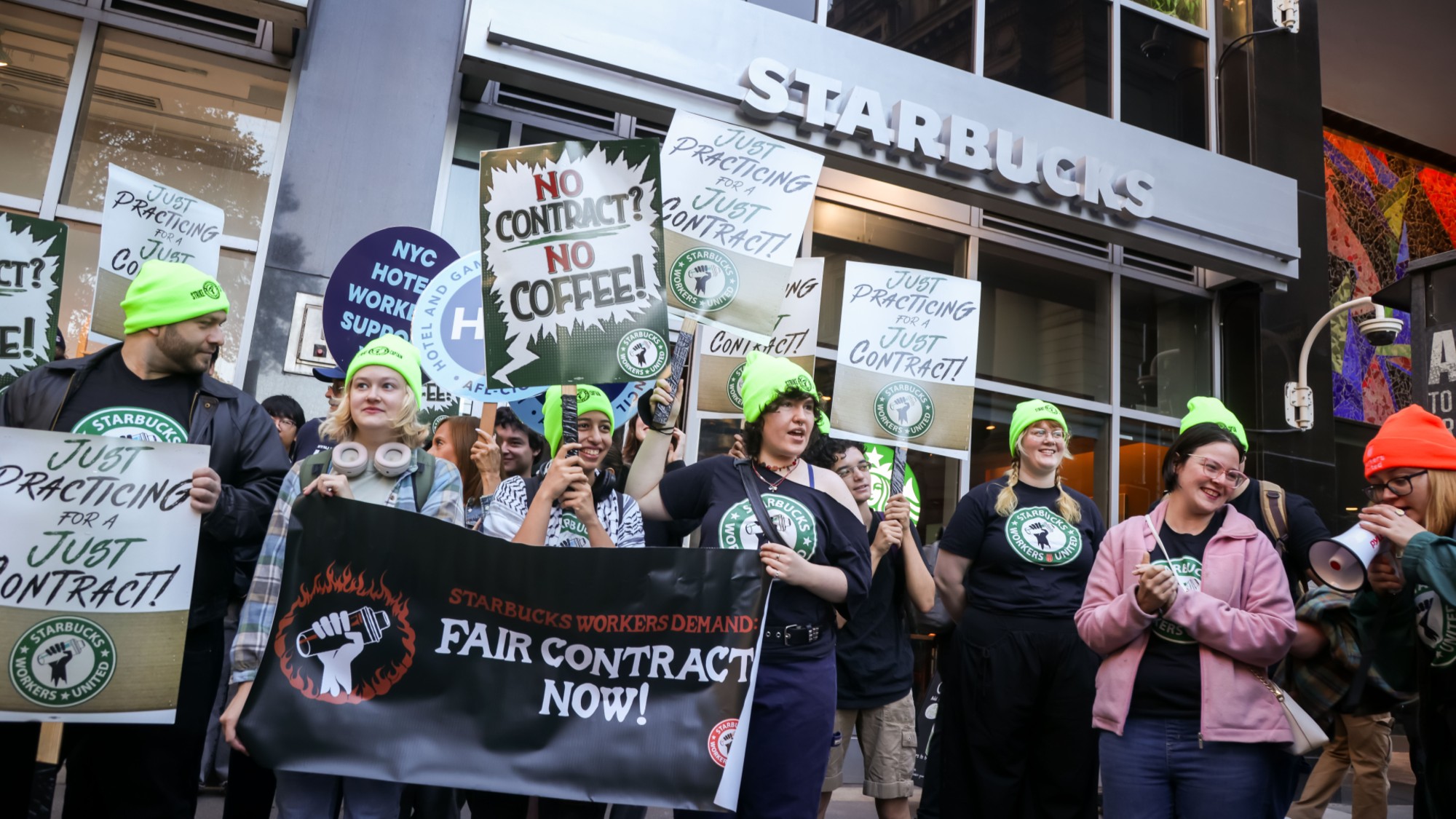 Starbucks workers are planning their ‘biggest strike’ ever
Starbucks workers are planning their ‘biggest strike’ everThe Explainer The union said 92% of its members voted to strike
-
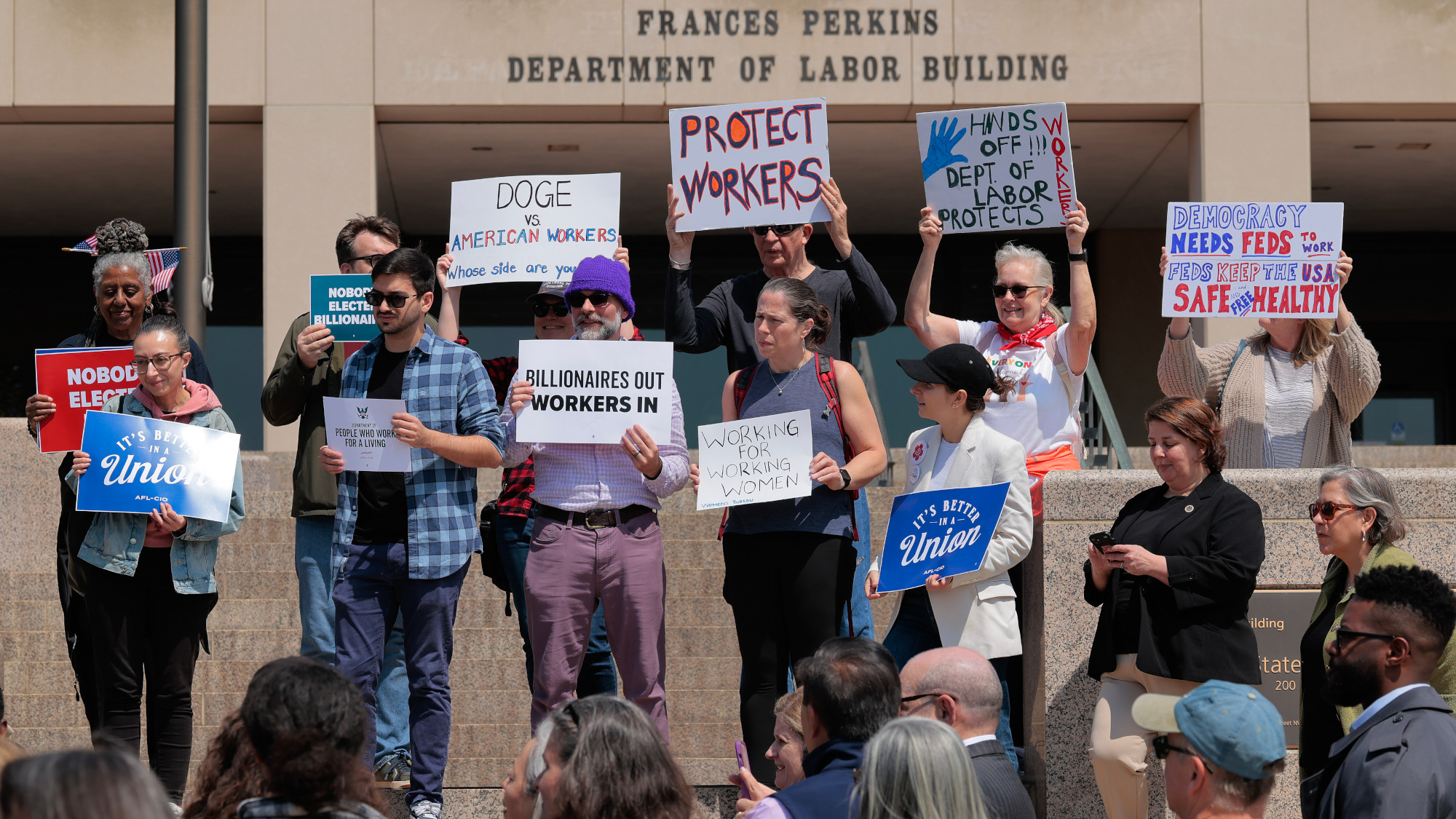 Labor: Federal unions struggle to survive Trump
Labor: Federal unions struggle to survive TrumpFeature Trump moves to strip union rights from federal workers
-
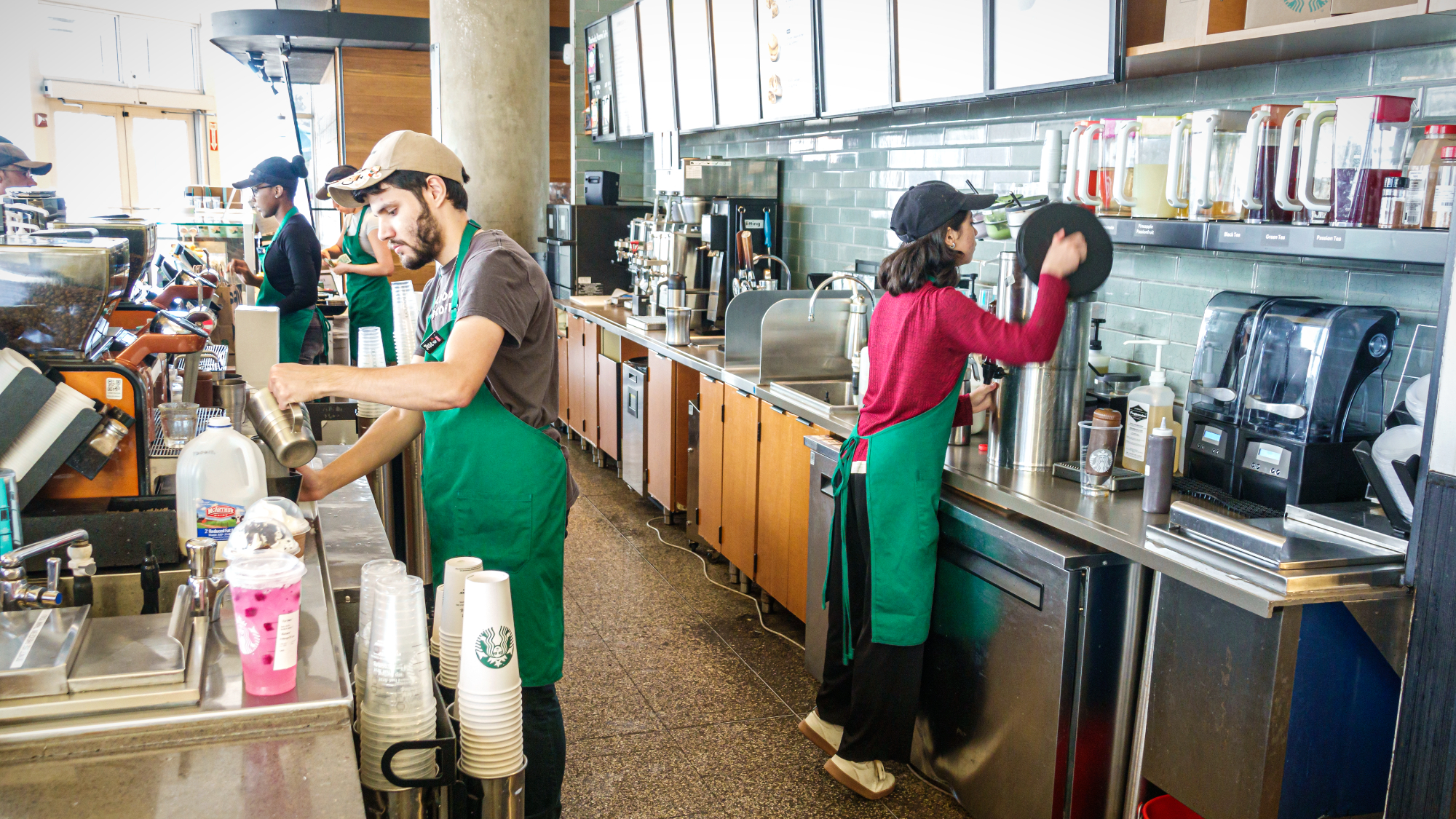 Starbucks baristas strike over dress code
Starbucks baristas strike over dress codespeed read The new uniform 'puts the burden on baristas' to buy new clothes, said a Starbucks Workers United union delegate
-
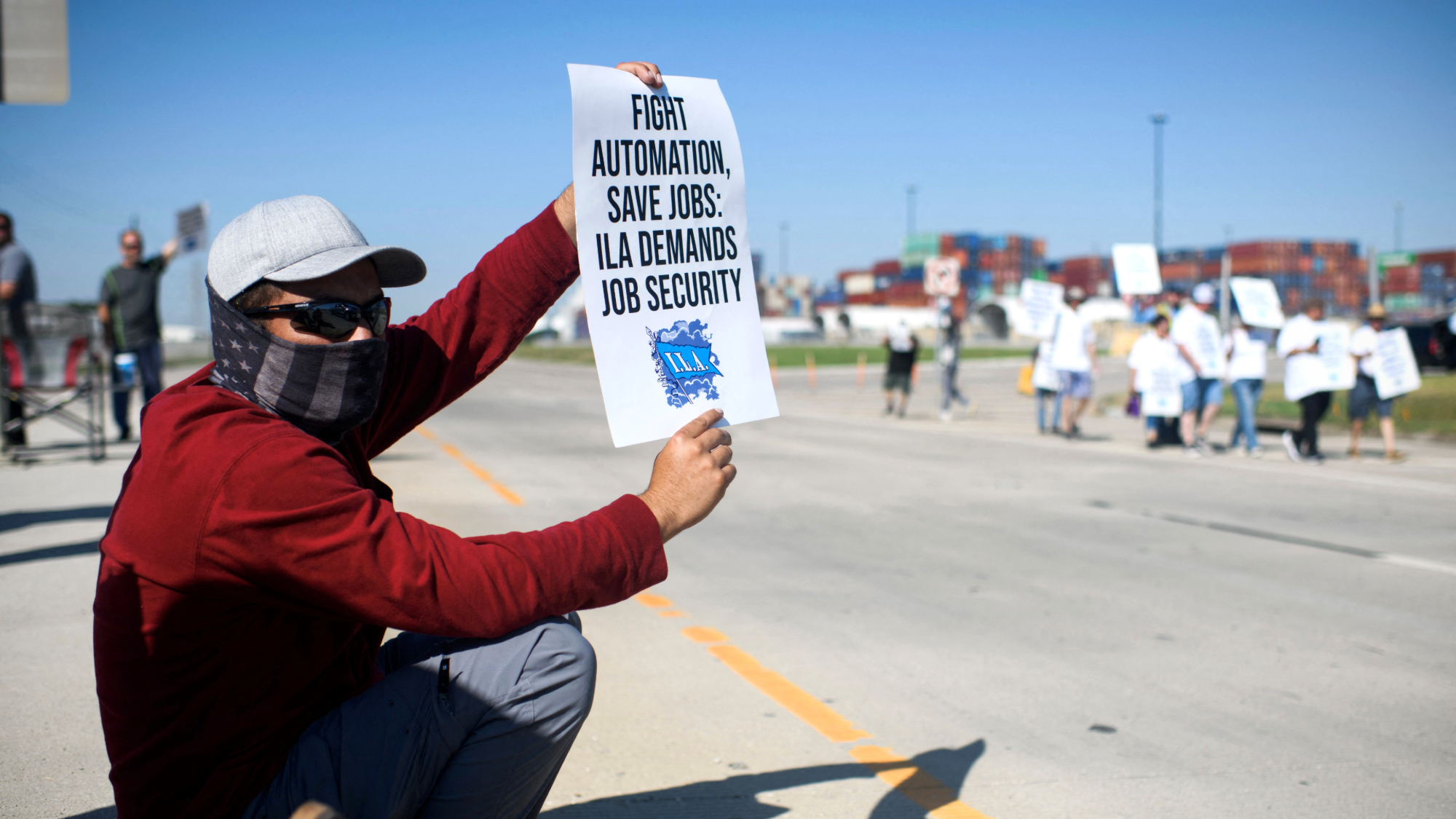 US port strike averted with tentative labor deal
US port strike averted with tentative labor dealSpeed Read The strike could have shut down major ports from Texas to Maine
-
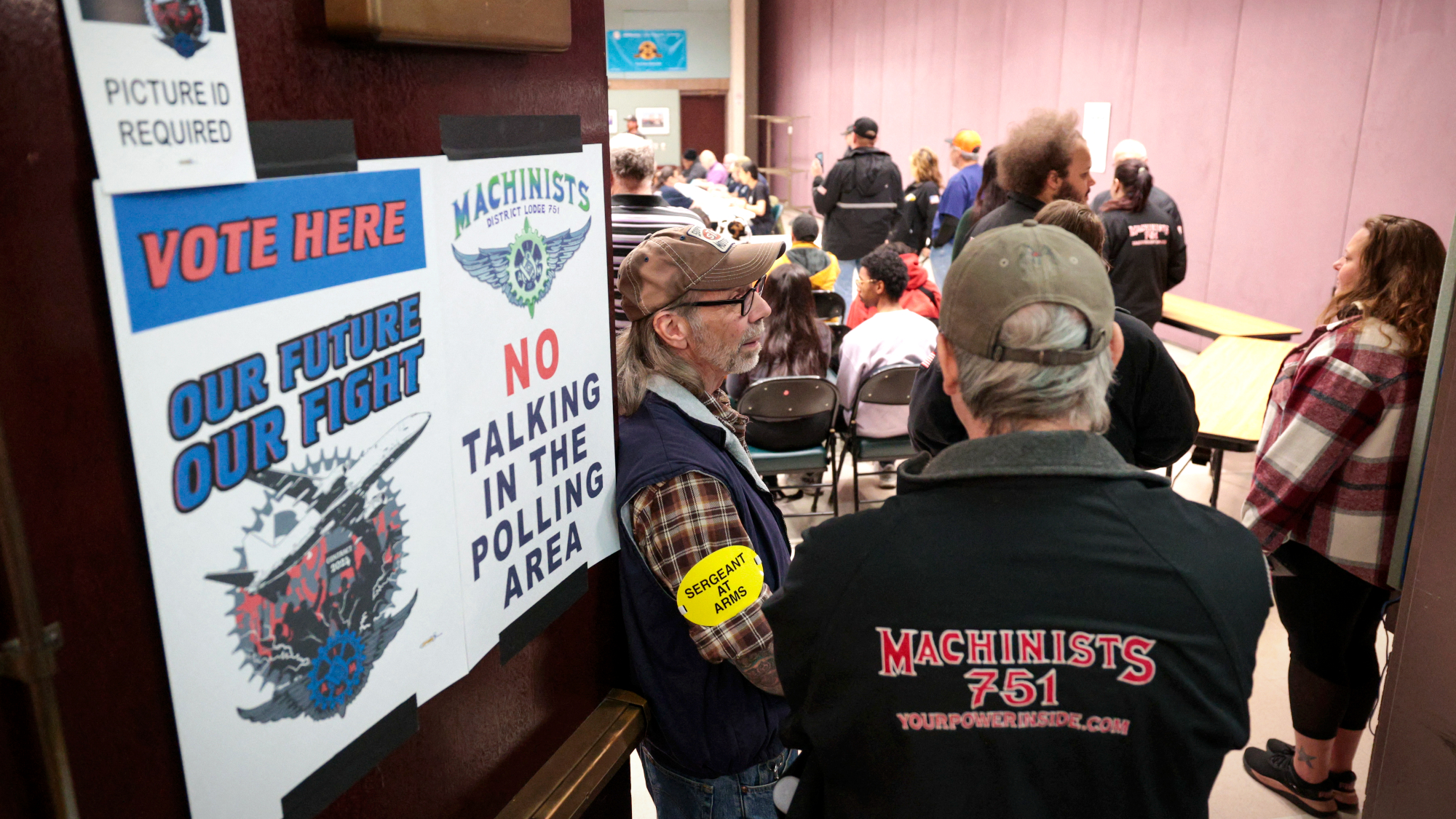 Boeing machinists approve contract, end strike
Boeing machinists approve contract, end strikeSpeed Read The company's largest union approved the new contract offer, ending a seven-week strike
-
 Boeing machinists reject deal, continue strike
Boeing machinists reject deal, continue strikeSpeed Read The rejection came the same day Boeing reported a $6.2 billion quarterly loss
